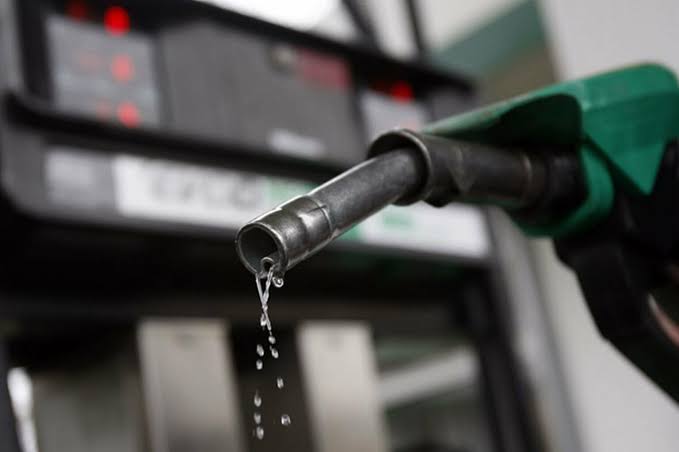Dangote Petroleum Refinery on Friday announced an upward adjustment in the prices of its Premium Motor Spirit (PMS) commonly known as petrol, to its bulk purchase customers, citing escalating global crude oil price which is now above $80 per barrel.
But the bulk price increase by the 650,000 barrels per day Lagos-based refinery will be responded to by a consequential hike in the pump price of petrol in the major cities currently selling between N925 and a little above N1,000 per litre.
In a statement obtained by THISDAY, the refinery announced that its refined petrol would now be priced at N955 per litre at the loading gantry, marking an adjustment in its pricing structure.
This emerged as oil prices moved lower on Friday, but remained on course for a fourth consecutive week of gains, as the latest U.S. sanctions on Russian energy trade heightened expectations for oil supply disruptions.
Precisely, Brent crude futures were down 57 cents, or 0.70 per cent, at $80.72 per barrel, having gained 1.15 per cent this week. U.S. West Texas Intermediate crude futures were down 44 cents, or 0.56 per cent, at $78.24 a barrel, having climbed 2.13 per cent for the week. “The oil market is in a bit of a wait-and-see mode, to understand if there are any supply disruptions based on the latest U.S. sanctions versus Russia,” UBS analyst Giovanni Staunovo said.
Furthermore, Dangote Petroleum noted that marketers buying between two million – 4.99 million litres will now buy at N955 per litre while five million litres and above will buy at N950 per litre.
The adjustment marks an increase of N55.5 or 6.17 per cent from N899.50 per litre announced as a holiday discount for Nigerians last year December.
The refinery stated that the latest adjustment applies to all stock balances yet to be lifted by the stated time while pending stock as of the effective time will also be repriced at the updated rates.
The statement added that the new price regime will take effect from 5:30p.m., on Friday.
The notice titled, ‘Communication on PMS Price Review’ read, “Dear Esteemed Customer, Trust this email finds you well.
“Kindly be advised that effective from 5:30p.m. today, an upward adjustment has been implemented on the gantry price of Premium Motor Spirit.
“New Price (NGN/ Litre) 2 million – 4.99 million N955; 5 million litres and above N950.
“Please note that all stock balances yet to be lifted as at the above-stated time are to be repriced at the new reviewed prices.
“We shall communicate with customers on their revised volumes based on the reviewed prices, in due course.”
However, industry experts have said the price increase was expected to have widespread effects on the downstream petroleum sector, particularly private depots and retail markets.
An oil and gas expert and Chief Executive Officer of petroleum price.ng, Olatide Jeremiah, said depots were poised to increase the loading price of refined petroleum products because of the heavy influence of the refinery.
Jeremiah said, “Dangote Refinery’s influence on fuel price has become unmatched; private depots, major marketers, and independent marketers will compete with this new price. Therefore, Nigerians should expect an increase in petrol pump price.
“Brent Crude oil as of today is $81.84, highest in 2025, its one major factor for the increase.”
Moreover, as pump prices of petrol are expected to be increased in the coming days, following the new bulk price adjustment, this will no doubt lead to the hike of transportation and commodity costs in the country, further making life more difficult for the citizens.
On Thursday, Minister of State for Petroleum Resources (Oil), Senator Heineken Lokpobiri, had disclosed that the price of crude oil in the international market remained a major force in driving the fluctuations in the pump prices of petrol.
He said the downstream sector was now fully deregulated with the government no longer involved in setting prices.
Similarly, President of Petroleum and Natural Gas Senior Staff Association of Nigeria (PENGASSAN), Mr. Festus Osifo, had, on the same Thursday, urged Nigerians to expect a marginal increase in petroleum product prices in the coming days, unless there was an improvement in the exchange rate.
Speaking at the Public Session of PENGASSAN’s National Executive Council meeting in Lagos, Osifo identified the exchange rate and fluctuation in crude prices as the primary factors influencing the high cost of petrol in Nigeria.
He stated, “The high pump prices of petroleum products are directly tied to the exchange rate. If the naira strengthens to less than N1,000 per dollar, PMS could be sold for less than N600 per liter,” he stated.
He clarified that while crude oil allocated to local refineries, including Dangote Refinery was priced in Naira, the value was pegged to the international dollar benchmark.
He added that most of the equipment used in oil exploration and production is procured in dollars, making the oil and gas sector largely a dollar-based business.
Osifo noted that the decline in crude oil prices from $83 to $70 per barrel toward the end of 2024 was responsible for the reduction in petrol prices during the last yuletide.
He noted that if Nigeria’s foreign exchange strengthens and crude prices appreciate, the pump price of PMS will decrease.
He added, “However if our local refineries operate efficiently, we can significantly reduce logistics and transportation costs in the exchange rate.Speaking at the Public Session of PENGASSAN’s National Executive Council meeting in Lagos, Osifo identified the exchange rate and fluctuation in crude prices as the primary factors influencing the high cost of petrol in Nigeria.He stated, “The high pump prices of petroleum products are directly tied to the exchange rate. If the naira strengthens to less than N1,000 per dollar, PMS could be sold for less than N600 per liter,” he stated.He clarified that while crude oil allocated to local refineries, including Dangote Refinery was priced in Naira, the value was pegged to the international dollar benchmark.He added that most of the equipment used in oil exploration and production is procured in dollars, making the oil and gas sector largely a dollar-based business.Osifo noted that the decline in crude oil prices from $83 to $70 per barrel toward the end of 2024 was responsible for the reduction in petrol prices during the last yuletide.He noted that if Nigeria’s foreign exchange strengthens and crude prices appreciate, the pump price of PMS will decrease.He added, “However if our local refineries operate efficiently, we can significantly reduce logistics and transportation costs



